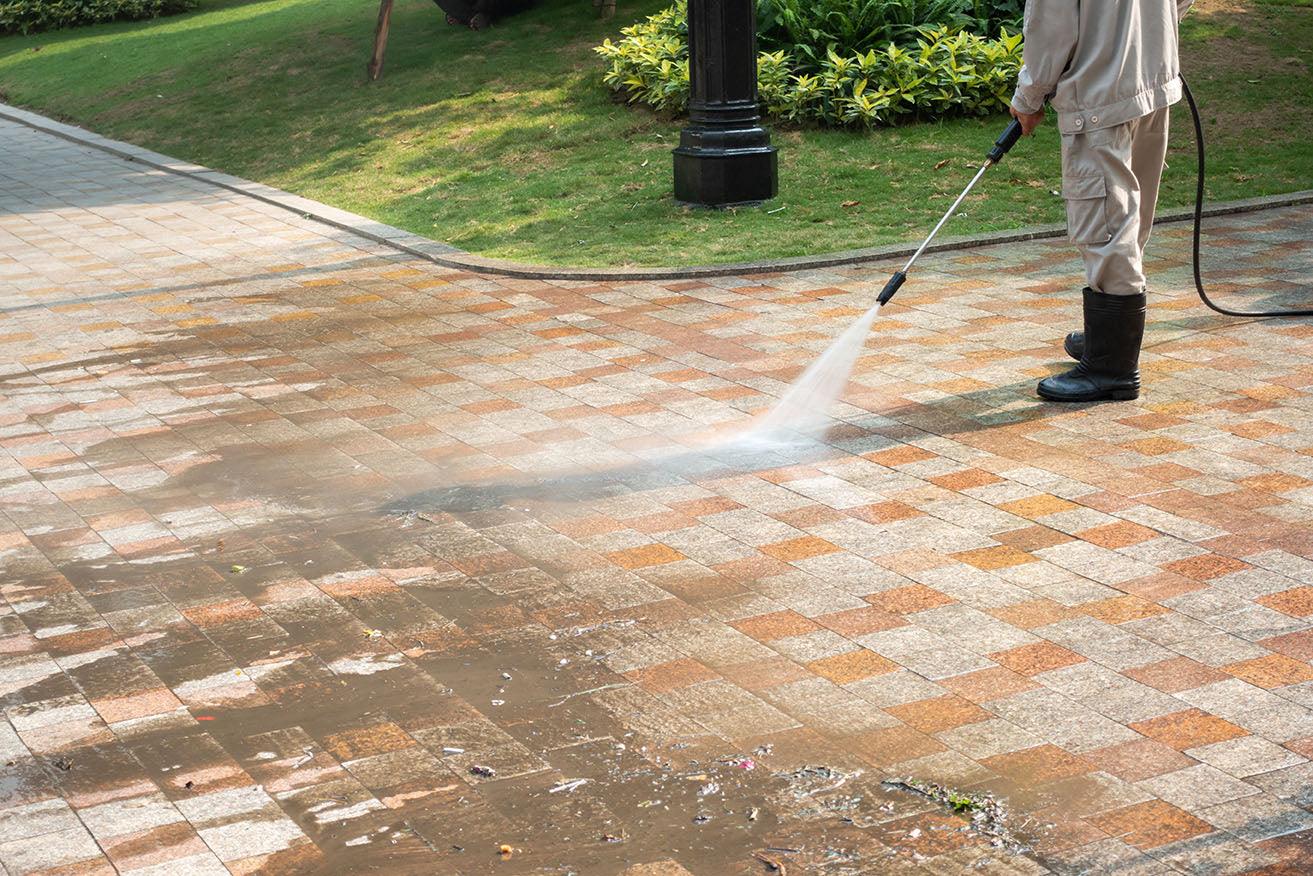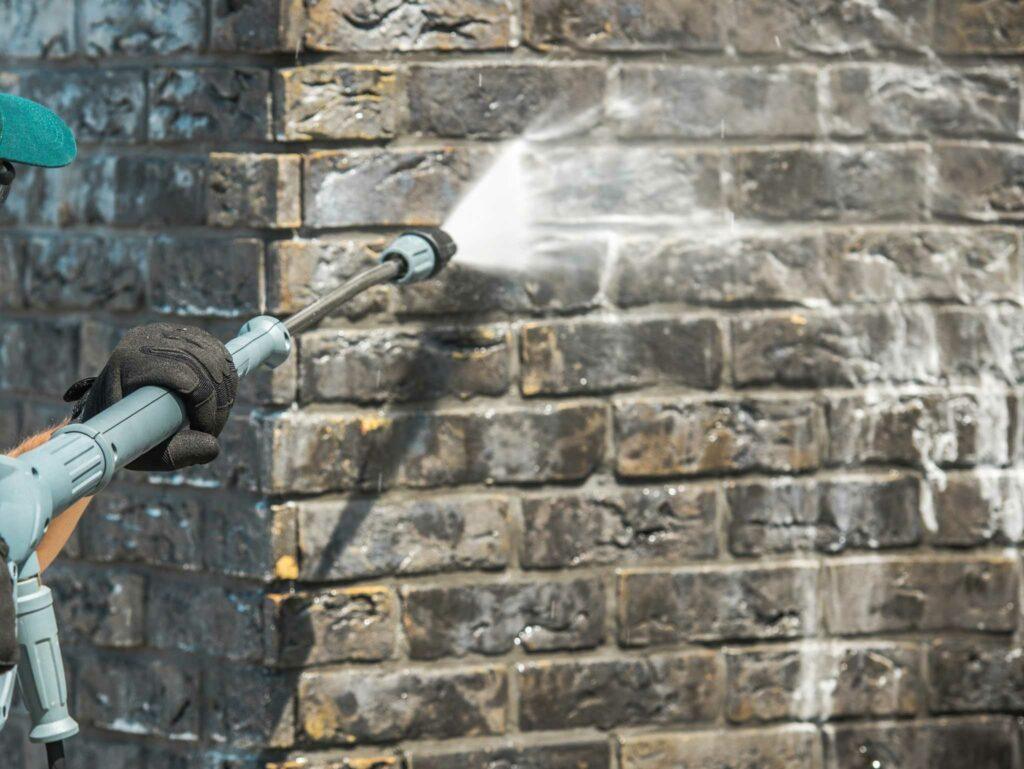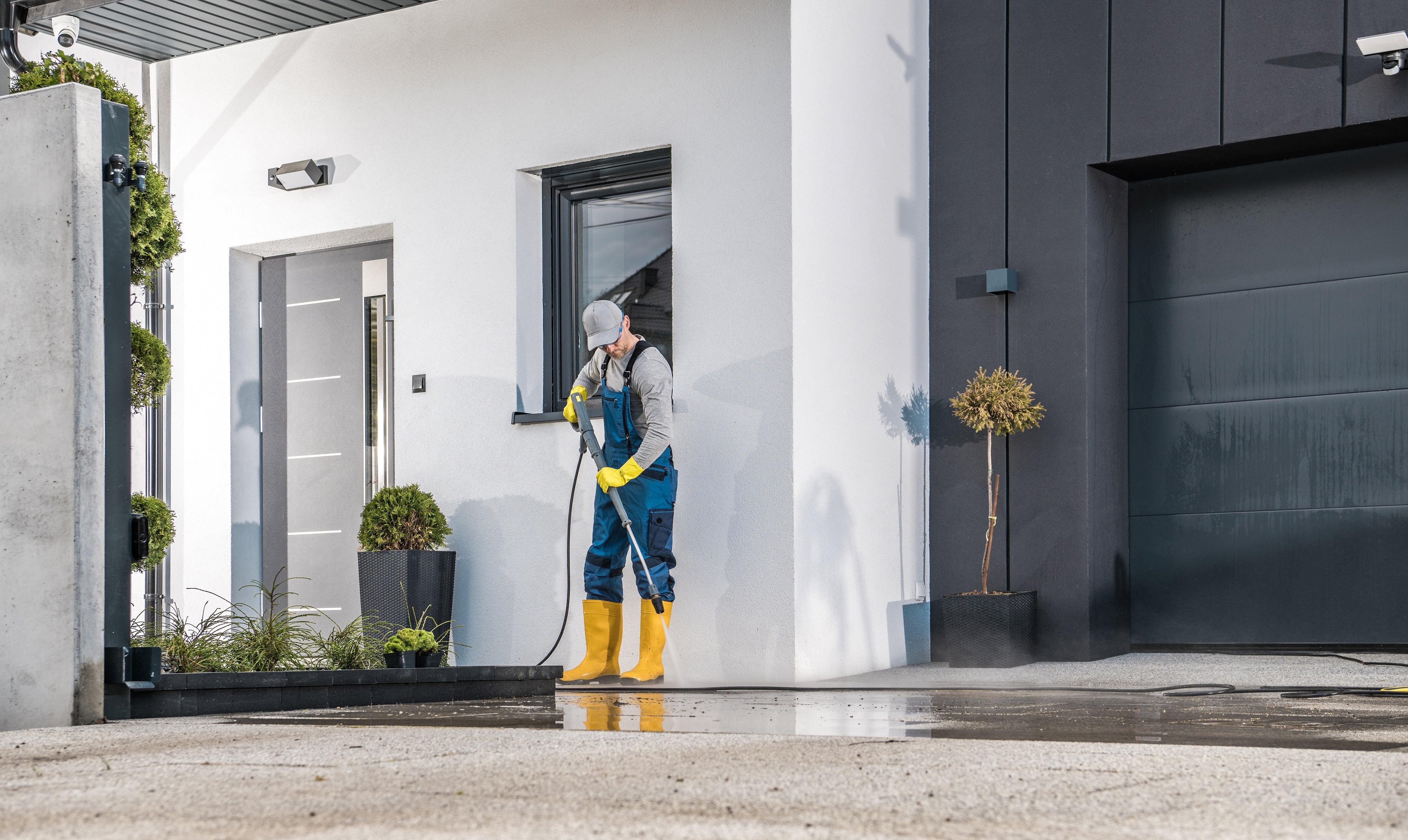Pressure washing is a low-volume, high pressure process whereby the offending stains are mechanically etched off the surface with high-forced water – consider it a more manual approach to cleaning.
Pressure washing is a technique that uses a high-powered stream of water to clean surfaces. The concentrated jet of water can remove dirt, grime, mold, mildew, loose paint, and other unwanted materials from a variety of surfaces.
Is pressure washing safe?
When conducted by a trained professional, pressure washing is a safe approach to external cleaning.
What can you pressure wash?
Most hard surfaces can be pressure washed. This includes, but is not limited to, concrete, metal, brick, tile and some timber surfaces. Pressure washing should be conducted by a trained professional.
10 common things you shouldn’t pressure wash
Here are ten common things you shouldn’t pressure wash, which might surprise you given their robust appearance or frequent exposure to the elements:
Asphalt Shingles: The intense pressure can strip away the granules that protect your roof from UV rays and inclement weather.
Old Mortar: Pressure washing can dislodge the mortar between bricks on older homes, leading to structural and water damage.
Painted Surfaces: Unless you’re trying to remove the paint, a high-pressure wash can undesirably strip away paint from surfaces.
Wooden Decks and Fences: High pressure can gouge wood, creating splinters and weakening structural integrity.
Vehicles: The powerful stream can peel paint, damage trim, and force water into sensitive areas.
Windows: Pressure washing can break seals, causing leaks, and may even shatter the glass.
Stained Wood: It can remove the finish along with the grime, leaving your wood unprotected and discoloured.
Gutters: While it’s tempting, the force can bend or dislodge gutters from their attachments.
Outdoor Light Fixtures: Water can seep into wiring and sockets, risking electrical failures and hazards.
Air Conditioning Units: High pressure can bend or crush the delicate fins and push dirt deeper into the unit.
Each of these items requires a gentler approach to cleaning to avoid costly damages and ensure they continue to function properly and look their best.
Can pressure washing cause permanent damage?
Pressure washing has the ability to cause permanent long-term damage to both flora and fauna, as well as property and substrates. The list above can act as an indicative guide to surfaces which must be carefully considered prior to commencement of any project.
Furthermore, the introduction of hot water to any pressure-washing project increases the need for great understanding of the processes associated with water blasting.




Leave a comment
This site is protected by hCaptcha and the hCaptcha Privacy Policy and Terms of Service apply.